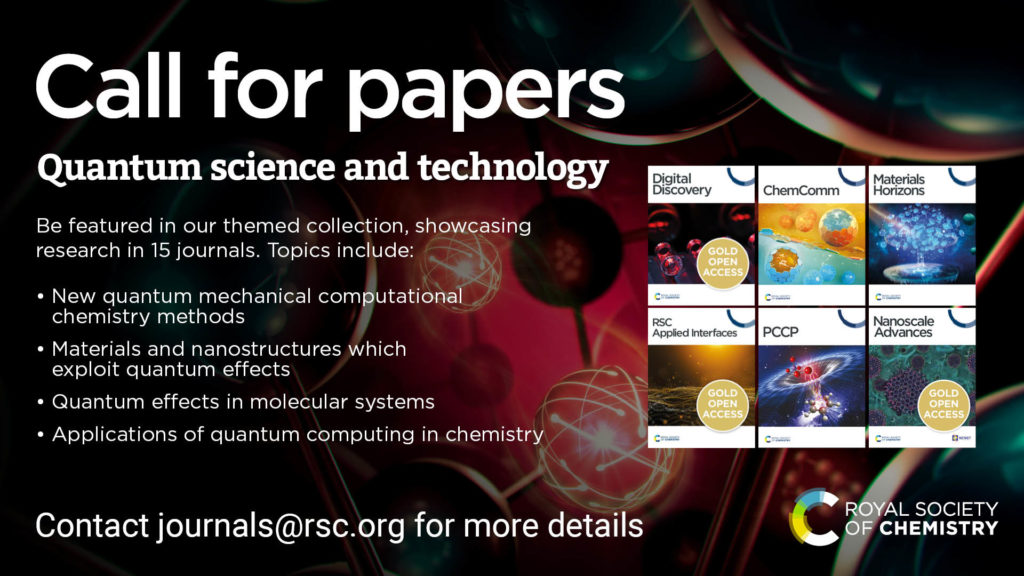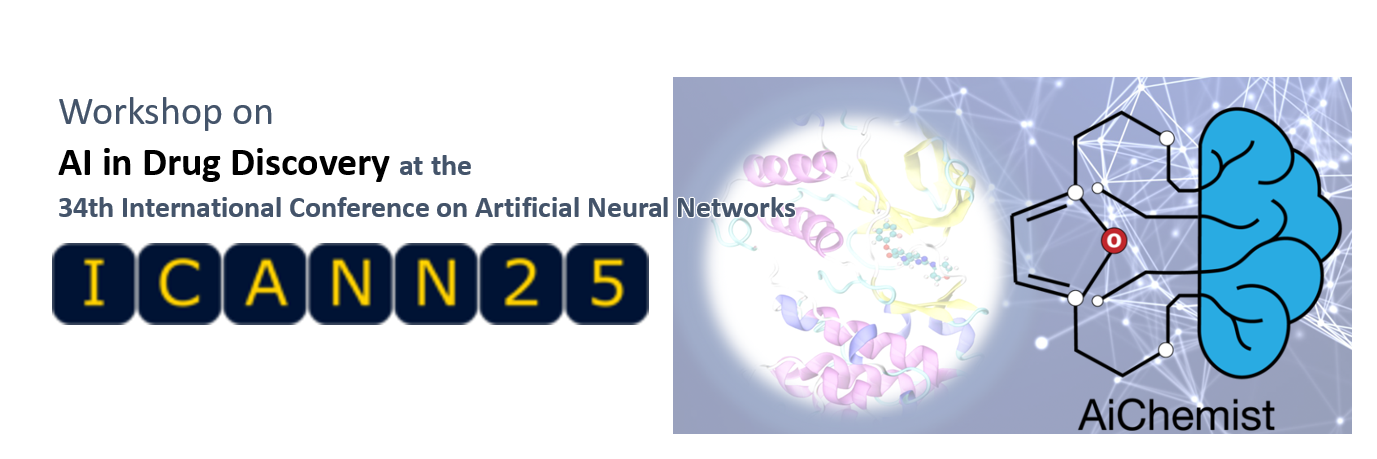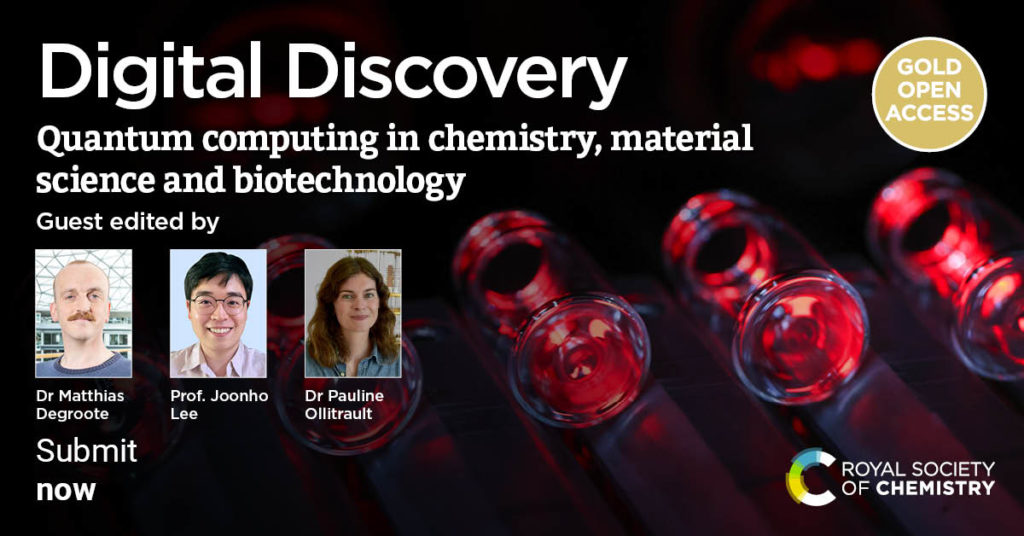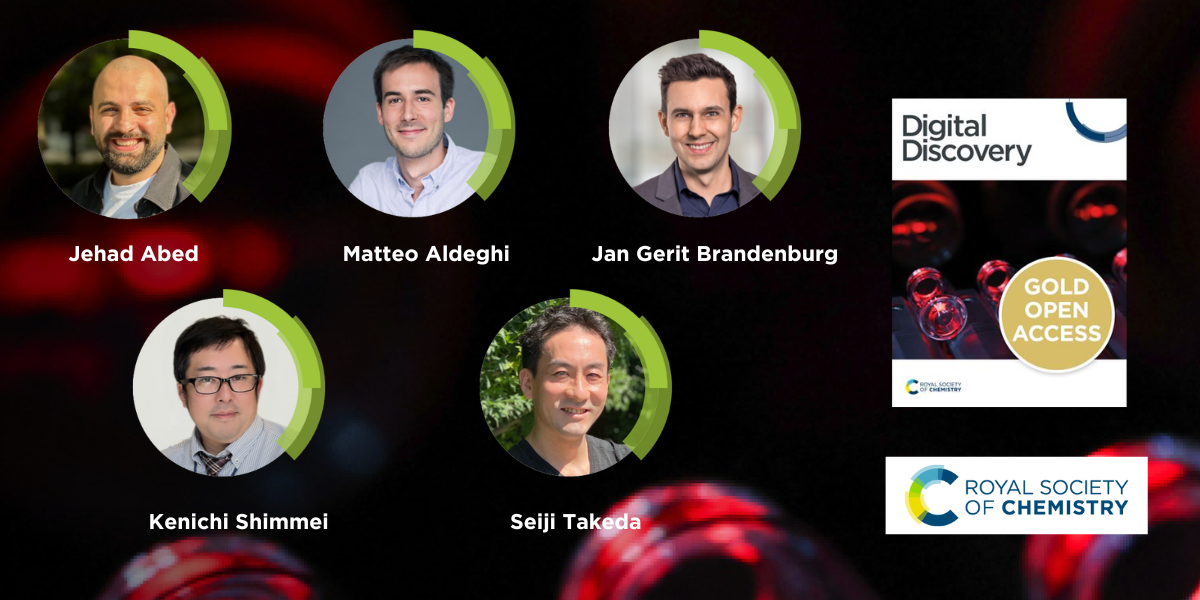As we enter the last quarter of 2025, we are excited to share our latest updates from Digital Discovery with the community.
Get future updates directly to your inbox with our email alerts. Sign up here.
Latest News

Digital Discovery has introduced a new article type, Commit, for incremental improvements to articles previously published in the journal. This could include improved hardware designs, new features in software, or expanded datasets. Find out more in our Editorial at DOI: 10.1039/D4DD90053G, read the first Commit in DOI: 10.1039/D5DD00089K, and contact the Editorial Office at digitaldiscovery-rsc@rsc.org with your questions or comments.
Jan Weinreich and Daniel Probst have received the Digital Discovery Outstanding Early Career Researcher Award 2025 for their paper “Learning on compressed molecular representations”. Their work uses string compression to predict molecular properties, with performance competitive to state-of-the-art graph neural networks. Our congratulations to the winners! Find out more about the winners and their work in our blog post.
Research Spotlight
We were delighted to feature a manuscript by Omar M. Yaghi et al. on the journal’s cover on the same day that Professor Yaghi received a Nobel Prize for his work on metal-organic frameworks. Read our October front cover article here: “Comparison of LLMs in extracting synthesis conditions and generating Q&A datasets for metal–organic frameworks”.

Data-driven accelerated science depends on well-organised, accessible datasets. In “A FAIR research data infrastructure for high-throughput digital chemistry”, Cousty et al. discuss the research data infrastructure of SwissCat+, which transforms experimental metadata in to RDF graphs using an ontology-driven semantic model.
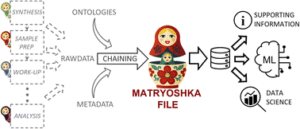
We’re pleased to share the first article from our collaboration with the AI in Drug Discovery workshop at ICANN 2025: “MARCUS: molecular annotation and recognition for curating unravelled structures”. This web-based tool from Steinbeck et al. provides a human-in-the-loop approach to extracting and curating data from the natural product literature. Access MARCUS at https://marcus.decimer.ai/.

Digital Discovery in the Community
We were proud to offer our support to a number of events and awards in the busy 2025 conference season. Our congratulations to all of the winners!
We were pleased to again sponsor a prize for the best talk at the Machine Learning and AI in Bio(Chemical) Engineering Conference, won by Calvin Yu (University of Bristol, UK). Our colleagues at Molecular Systems Design & Engineering also sponsored the award for best poster, won by ZhengJie Liew (University of Cambridge, UK).
Our partnership with the Accelerate Conference continues, with prizes for best posters to Florian Boser (Universität Münster, Germany), Xu Chen (University of Toronto, Canada) and Joy-Lynn Kobti (University of Windsor, Canada). We look forward to inviting all of the presenters at the meeting to contribute to a themed collection in the journal in the near future.
Finally, our new Deputy Editor Alexander Whiteside presented the People’s Prize sponsored by Digital Discovery at the 8th Artificial Intelligence in Chemistry Symposium, and was pleased to meet the winner, Sara Tanovic (University of Oxford, UK).
Editorial Board
The journal held its annual Editorial Board meeting online in October, shaping its strategy for 2026 and discussing our successes and challenges throughout the preceding year. We were pleased to welcome three new Associate Editors to the Board:
Prof. Milad Abolhasani of North Carolina State University, United States provides his expertise on self-driving labs. Prof. Abolhasani is the ALCOA Professor, a University Faculty Scholar, and the Director of the Graduate Program in the Department of Chemical and Biomolecular Engineering at North Carolina State University. He also serves as the Director of Accelerated Technologies within NC State’s Integrative Sciences Initiative.

Prof. Xin Hong of Zhejiang University, China contributes knowledge on the intersection of synthetic chemistry and data science. Prof. Hong is a tenured Associate Professor in the Department of Chemistry at Zhejiang University, and research focuses on understanding reaction mechanisms and structure–performance relationships in molecular synthesis, with a particular interest in integrating mechanistic insight with data-driven modelling.

Dr Melodie Christiansen from Merck & Co., Inc., United States, offers insights bridging chemistry, automation, and data science. Prof. Christiansen serves as Director of Data-Rich Experimentation in Process Research & Development Enabling Technologies at Merck & Co., Inc., leading the development and deployment of AI-driven automation technologies that accelerate pharmaceutical process research.
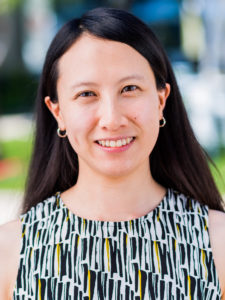
We also bid farewell to Editorial Board member Dr Linda Hung of the Toyota Research Institute, United States, whose term as an Associate Editor ends this year. Her insights and support of the journal from the outset were essential to its present success, and we wish her well in her future endeavours.
Collections
In addition to our upcoming themed collection with the Accelerate Conference 2025, Digital Discovery will feature contributions from the second international symposium on High-Throughput Catalysis Design, in a joint collection with Reaction Chemistry & Engineering and Catalysis Science and Technology. We look forward to working with the participants in due course. Follow the journal on social media or watch out for our next newsletter for information on our planned call for papers on Large Language Models, and the publication of our collection on Quantum Computing.
Upcoming Events
Executive Editor Anna Rulka will be representing Digital Discovery at this year’s Pacifichem symposium in Honolulu, Hawaii, on 15-20 December 2025. This year’s meeting features sessions organised by our Editor-in-Chief Alán Aspuru-Guzik and Associate Editor Yousung Jung. We look forward to meeting you there!
Stay Connected
Postdoc or early career researcher? Interested in building your peer review experience and helping improve open data at Digital Discovery? Consider becoming a data reviewer. Find out more on our blog post.
Follow us on LinkedIn and Bluesky for new articles and the latest news from Digital Discovery and related journals at the Royal Society of Chemistry.




 His research centres on uncovering reaction mechanisms and structure–performance relationships in molecular synthesis. His group is particularly focused on integrating mechanistic understanding with data-driven approaches — including the development of chemically interpretable molecular graph models and transfer learning methods to overcome small-data limitations in organic chemistry.
His research centres on uncovering reaction mechanisms and structure–performance relationships in molecular synthesis. His group is particularly focused on integrating mechanistic understanding with data-driven approaches — including the development of chemically interpretable molecular graph models and transfer learning methods to overcome small-data limitations in organic chemistry.
